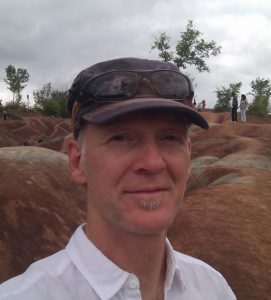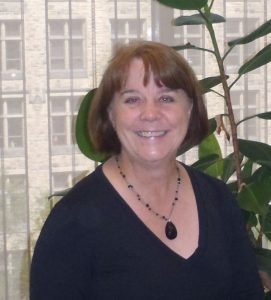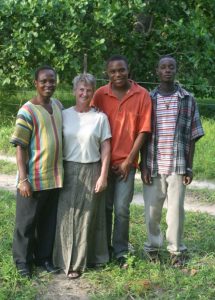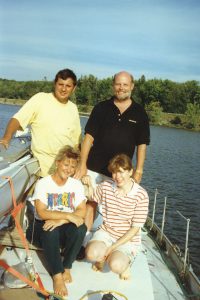“We, Diane and Herbert Stuemer traveled by boat on a 4 year voyage around the world with our children Michael, Jonathan and Christopher. Diane had written weekly dispatches to the local newspaper in Ottawa. Our projects began in July of 2000, in a small rural town called Kilifi, Kenya. By the time we arrived in Kenya, we were staggering under a burden of generosity that had been freely given to us in islands and villages all around the world. We were learning first-hand that regular people in every country of the world are overwhelmingly kind and generous. We alighted from our dinghy one day at a beach. Standing there were two young men, Boniface, age 16, and Hamisi, 18. They held in their hands a tattered plastic bag, containing a handful of precious fossilized shark teeth, 20 million years old.We didn’t want to buy the fossils, but we did hire the two young men to take us fossil hunting. The next day, as they showed us how to find the fossils, we got to know them better. Neither of them was going to school. Hamisi hadn’t gone past grade eight, and Boniface had just been kicked out of grade nine because his family couldn’t afford to pay the school fees. We learned that it cost about $500 a year to send Boniface to high school. His father, a hotel steward, earned $60 a month. He had 17 children. No wonder Boniface couldn’t continue his education! The next day the boys invited us to visit them in their villages. We inspected their homes, which were made from mangrove poles, mud and thatch, just as rural homes are, all over Africa. No electricity, no running water, dirt floors, the simplest kind of home imaginable. Hamisi’s oldest brother turned out to be the local medicine man. Herbert and I watched him conduct a ceremony, which included sacrificing a chicken. Then, a little bewildered and surprised over what we had witnessed, we headed over to Boniface’s village. Boniface’s village was just like Hamisi’s – the same dusty mud huts, the same collection of raggedy children. We sat down in a circle of Boniface’s many brothers (the women were all away working in the fields – Boniface’s family, like most others, are subsistence farmers with a small plot of land on which the women grow maize, a kind of corn.) Conscious that probably no one in Boniface’s family would have much education, I remember deliberately simplifying my vocabulary to make sure they all understood me. Then came a voice from the back of the group. It belonged to Boniface’s oldest brother, Andrew. “I think it’s time we stakeholders understood,” he said, “that education is anathema to the continuation of poverty in Africa.” What? Anathema? What was a man with a vocabulary like that doing sitting in front of a mud hut? We had to find out more about this surprising young man. We learned that Andrew, who was 32, had received the best marks in his elementary school (a school without walls or roof, under a great baobab tree) and thus had won a scholarship from the YMCA to attend high school. Then, achieving excellent marks in high school, he had won another scholarship to attend college. That’s how he had ended up with a university-level vocabulary, and a mind to match. After two years of college, Andrew had succeeded in getting a well-paying job in a hotel, earning about $200 a month. But he wasn’t using his salary to buy a TV, or better clothes for his kids. He still lived in a mud hut without electricity or running water. He was putting his funds towards something infinitely more important – education for his younger brothers. Out of his small salary, he was attempting to pay the $500 a year school fees for each of his younger siblings. He understood that there was no hope for his family, for his country, for his continent, without education. So he was putting all his resources into providing something for his own family that we in North America took for granted – a simple high school education. “Andrew is,” another of his brothers, Mark, told us, “a hero.” Mark was right. (Click here to read Andrew’s story, in his own words.) Andrew had managed to put three of his younger brothers through high school, but our young friend Boniface, the fourth in line, was out of luck. Andrew’s money had run out. And that is why we had met this boy selling shark teeth in the hot African sun. For months before that, Herbert and I had been wrestling with the problems of Africa. Many a night we discussed the things we had seen at the supper table, and were unable to come up with solutions. Many a time we had cried tears of despair. Andrew Thuva was a turning point for us, in our journey and in our lives. For the first time, we understood – not with our minds, but with our hearts and souls – that Andrew and his family were not ‘them’, but ‘us’. We realized that had Andrew been born in Canada, he might be the finance minister. That if we had been born in Andrew’s place, with all the intelligence and ambition and hard work in the world, we would still be sitting, as Andrew was, in front of a mud hut. That unless we offered to help, we would have somehow failed our test as human beings. We knew we couldn’t solve Africa’s problems, but now we realized that we could solve Boniface’s problems. Even if we couldn’t change the world, we could change Boniface’s world. And so we told Andrew and Boniface that we would take over paying Boniface’s school fees. It was a small thing, no more than anyone in our position might do. Then the most wonderful thing happened. Other people back at home, strangers, reading about Boniface and Hamisi and Andrew, also sent in money to help. Soon we had enough money to do other good things for these people – who might have been us, who were us. All we did was plink one little pebble down a mountainside, but suddenly it was turning into an avalanche. We had earlier set Hamisi up in a jewellery-making business, turning his fossils into beautiful necklaces and earrings. Now, with the new donations, we were able to buy him a milk cow, to provide much-needed income for his family. Over the next few weeks, we were able to send one of Boniface’s brothers, Mark, to a post-secondary training course to become a hair stylist. And we were able to pay the more than $1000 cost of life-saving surgery for Boniface’s father, who had a large and growing tumour. So when we finally left Kenya, our hearts were a little lighter. Perhaps that’s because we left a small piece of us behind in some mud hut somewhere along the way. A year later, we arrived back in Canada. To our surprise, 3000 people were there to welcome us home. That day, they contributed $11,000 for the Friends of the National Parks in Indonesia, and the Boniface and Hamisi Educational Fund in Kenya, which had become so important to us, and a focal point of our journey. This fund was formalized by Diane in 2002 and became a registered charity in 2004 under the name Northern Magic Fund for International Development. Diane died in March of 2003 but the fund has grown ever since. We’re happy to let you know that in 2008 163 Kenyan children attended high school, their school fees paid thanks to the generosity of people half a world away. We hope you’ll join us in helping make the world a better place.









